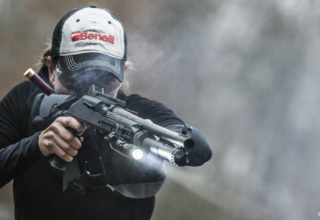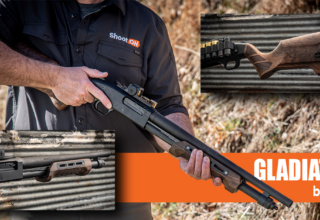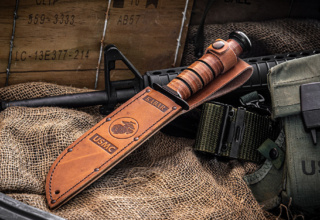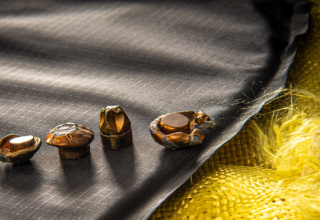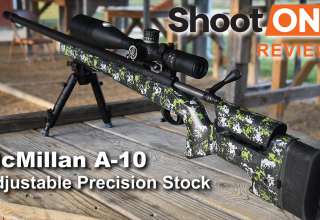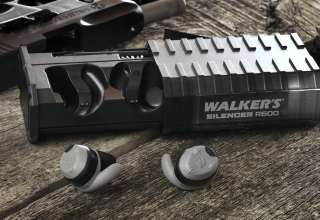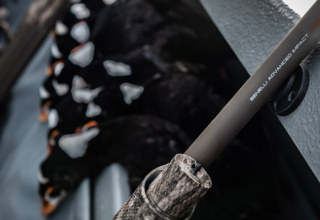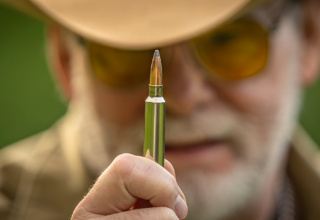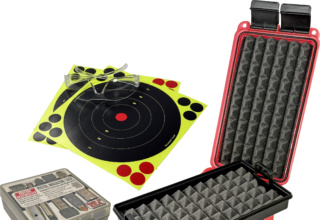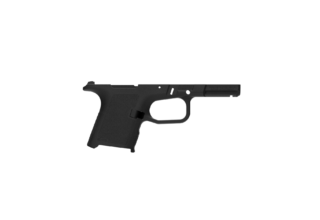Serious shooters spend a lot of time and money tinkering around the edges of their rifle platform, installing fine-tuned triggers, bedding custom barrels, spending significant money on high-end optics, and, of course, there is the never-ending pursuit to find the right cartridge load that brings it all together. All of this is part of the program if maximum accuracy is the goal. The thing is, optimal performance will always be a fuzzy, elusive target to hit if the rifle’s foundation is not solid…as in rock-solid.
 Minutiae counts big in precision rifle shooting, which is why the combination of the best barrel, best scope, and best trigger you can afford will never reach full potential so long as they’re mounted on a weak stock. That’s because stocks can flex under recoil, causing the barreled action to shift and thereby hinder the goal of consistent point-of-impact. This is why you rarely see dedicated shooters—target shooters or hunters—hanging with factory stocks. Solid wood stocks have inconsistencies in their grain structure, which can lead to unpredictable flexing under recoil, and conventional polymer (plastic) stocks also flex because they are hollow and rely on relatively thin walls and gusseted forends to maintain some semblance of rigidity.
Minutiae counts big in precision rifle shooting, which is why the combination of the best barrel, best scope, and best trigger you can afford will never reach full potential so long as they’re mounted on a weak stock. That’s because stocks can flex under recoil, causing the barreled action to shift and thereby hinder the goal of consistent point-of-impact. This is why you rarely see dedicated shooters—target shooters or hunters—hanging with factory stocks. Solid wood stocks have inconsistencies in their grain structure, which can lead to unpredictable flexing under recoil, and conventional polymer (plastic) stocks also flex because they are hollow and rely on relatively thin walls and gusseted forends to maintain some semblance of rigidity.
For these reasons, shooters in-the-know almost always outfit their rifles with a super-stiff, robust fiberglass stock system—one that not only offers some added weight for stability on the rest, but also manages recoil on even the largest caliber rifles. The down side to fiberglass stocks in the match-grade caliber is the price. Inexpensive they are not.
This year McMillan Fiberglass Stocks—the leading name in high-end precision rifle stocks—addressed the performance-to-price differential by introducing a new generation of precision rifle stocks. Called the MC3, or McCubed, this new stock platform is injection-molded so it is significantly less costly to manufacture than fiberglass or carbon fiber stocks, yet it is a solid stock and not hollowed out in the forend as are conventional injection-molded polymer stocks. The bottom line is that McMillan’s new MC3 stock delivers rigidity and performance similar to more expensive custom fiberglass stocks but, thanks to proprietary manufacturing materials and processes, does so at a much lower cost to the consumer.

Conventional polymer stock designs are inherently handicapped in the stiffness department. That’s because plastic stocks are limited to the thickness at which they can be molded. If the molded plastic is too thick, problems arise due to shrinkage and challenges in maintaining uniformity and close tolerances. Because of this material design limitation, conventional molded polymer stocks are hollow in the forend. To help counter this weak construction, hollow plastic stocks feature ribbing or gussets to provide support beneath the barrel channel. Some stocks even come with an insert crafted to look like a barrel channel that is screwed into the forend. None of these approaches, however, fully mitigate the core problem of conventional molded polymer stocks—that is their tendency to flex (sometimes significantly) under recoil. The result, of course, is failure to maximize the accuracy potential of the overall rifle setup.
The new MC3 series rifles stocks by McMillan are the first and only stocks to be made from a proprietary polymer called Xenolite (versus the nylon 6, nylon 66, or polyethylene traditionally used for injection-molded stocks). Among the special properties of Xenolite is that shrinkage is not a factor. In other words, the stock design is not limited by the material as with other polymer stocks. This allows the MC3 stock to be molded as a solid piece. The key advantage to this is enhanced strength of the forend and greater resistance to flexing compared to standard polymer stocks.

McMillan uses an exclusive molding process to manufacture the MC3 stocks. This process also gives more control as to how the stock is profiled—especially along the sides of the forearm. Most traditional molded stocks demand a somewhat vertical profile along the sides of the forearm so that the mold core can be removed. McMillan’s new process, by contrast, allows the stock to not only be molded solid but also provides more flexibility in how they are able to contour the stock. In this case, they can injection-mold a solid polymer stock to the same dimensions as the company’s A5 model—unquestionably the most popular precision rifle stock market in competition and military circles today.
Topping off the core MC3 stock construction are aluminum pillars installed at the action and trigger guard screw locations. These are used to ensure the distance from the floor plate to the receiver is precise so that everything is properly aligned and that the cartridges will correctly feed into the chamber.
McMillan is introducing the MC3 stock for use with the popular Remington 700 platform in both short- and long-action. Two styles are available—the Legend and the Tradition.
The Legend model is based on the McMillan A5 tactical stock, with its characteristic contoured beaver tail forend profile and hooked-style buttstock. The Legend Standard for the Remington 700 BDL has a fixed buttstock while the Legend Deluxe comes with an adjustable comb and is available for the BDL or DBM varieties. For those looking for a somewhat lighter and stiffer stock, there is the Legend Deluxe Plus in BDL and DBM variants that is made with a carbon fiber-filled polymer.
 Hunters looking for a precision stock may want to consider the MC3 Traditions. This model is based off the McMillan Game Scout stock, which is a modified version of the Remington Classic but with the A-3 vertical grip to ensure comfortable field shooting and optimal trigger finger placement.
Hunters looking for a precision stock may want to consider the MC3 Traditions. This model is based off the McMillan Game Scout stock, which is a modified version of the Remington Classic but with the A-3 vertical grip to ensure comfortable field shooting and optimal trigger finger placement.
As for pricing, the McMillan MC3s are right in line for those who wish to upgrade their existing Remington 700 platform or would like to build a solid long-range rifle without investing serious cash in a top-level fiberglass stock. The MC3 Legend lineup, for instance, begins at $259 for the Legend Standard long-action and tops out at $489 for the Legend Deluxe Plus DBM in carbon fiber.
Considering the cost of a good fiberglass stock is in the $600-$1,000 range, that’s a lot of savings that can be applied to a crisp new trigger or a quality barrel.



